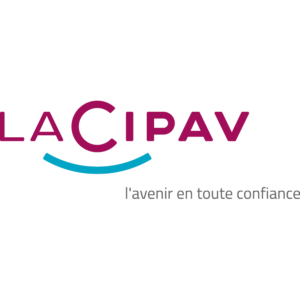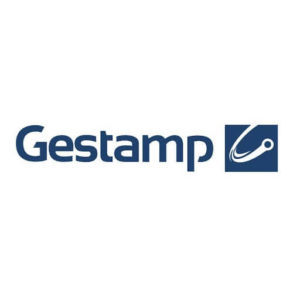Teleworking
Let's talk about your project
Since March 2020, France has had to adapt to the impacts of an unprecedented health crisis. Other consequences of this situation, teleworking has developed more significantly in the companies.
At the beginning of the lockdown, nearly one in three workers, or 7 million people, ended up teleworking overnight, according to the study carried out by Odoxa on 10 and 11 June 2020.
While for some people, teleworking was already a known and experienced working method, for a majority of French people this is something new that requires support at different levels (human, organizational, technical, etc.), to facilitate success and limit psychosocial risks.
It is also important not to confuse teleworking in exceptional circumstances (due to the need for an urgent reaction to the health context) with planned teleworking, framed by an agreement and supported by appropriate practices.
Teleworking: what is it?
Teleworking is defined as “any form of work organization in which work which could also have been performed within the employer’s premises is voluntarily performed by an employee outside these premises, using information and communications technologies” (Article L.1222-9 of the French Labor Code).
In this new framework, managers and their employees must adapt to many changes, integrate the notion of distance in their interactions, and develop new practices.
We can name, as an example, the inevitable development of the use of new technologies in order to facilitate communication, to follow or set up remote meetings, or to promote group work.
As a complementary example, adaptation to new workplaces (home, coworking space, etc.) is also part of the adaptations to be integrated and regulated.
Teleworking in a few key figures:
In 2018, 29% of employees in France used teleworking with an average of 7 telework days per month. We can expect that this percentage will drastically increase following the health situation linked to COVID-19.
Indeed, according to the survey conducted by the Anact-Aract network, and Harris interactive for Aésio, 88% of respondents would like to continue teleworking after the crisis. According to a study carried out by Odoxa, three-quarters of respondents (76%) believe that this practice should be more developed in France and 55% would like to telework more often.
This method then emerges as an overwhelmingly positive experience, but it must be supported. Within the framework of the health context, a survey carried out in 2020 among 849 teleworkers (Universities of Turin, Lyon 2, Paris Nanterre, and Haute-Alsace) specifies that only 21% of respondents have received training on teleworking. According to a study conducted by Malakoff Humanis (carried out among 1010 employees from private sector companies), 54% of teleworkers believe that they have not benefited from support during the teleworking implementation since the start of the lockdown (training, awareness).
Some key dimensions to take into account for a quality of life while teleworking
Supporting change, and here more specifically supporting the teleworking implementation in a healthy and efficient manner, is today a challenge for many companies of all sizes and in all sectors of activity.
In line with the recommendations of Anact, it is advisable to follow certain key dimensions of the conditions for implementing telework to promote the well-being and performance of teleworkers:
- The telework space and place, for example, preferably mobilizing a place dedicated to work, preferably isolated, calm, and suitable for concentration.
- The use of digital tools and other materials, which may concern, for example, computer equipment such as mobile phones, a double screen, but also seating comfort, in particular, to limit MSDs.
- The workload, realizing that teleworking can result in a greater commitment of certain employees, who supposedly work longer hours by saving on commuting time. For other employees, we also notice a lower workload than in the workplace. This highlights the need to adapt the management of teleworking times according to each individual.
- The work-life balance again can vary from one individual to another. For some employees, it’s easy to achieve this balance, by having the opportunity for example to take more time with the family circle while remaining fully focused on the time dedicated to working. For other employees, it can be harder to resist the temptations of personal life during working hours, due to the shared environment.
- Management, particularly in the need to be trained in remote management, to create a link, to perpetuate it remotely, to trust without excluding a control necessary for the smooth running of projects, etc. Remote management involves very specific practices that should be acquired to promote the smooth running of this working method.
- The working group, how to keep cohesion between the teams, promote exchanges, collective intelligence? Physical distance should not become an obstacle to interpersonal relationships.
What service does Ekilibre offer in terms of teleworking?
Our objective is to provide the best support for each company in achieving its goals, from the implementation of a global approach to more specific reinforcement actions.
Each of our supports is guided by a rigorous methodological framework and regularly updated scientific knowledge. We are also in line with the recommendations of national and international reference organizations.
As an example, the main services we can offer you are listed below.
- Assisting the development of a teleworking implementation approach
- Communication advice on the teleworking implementation
- Supporting a steering committee on the teleworking implementation and/or monitoring
- Supporting the signing of an agreement on teleworking
- Implementing experience feedbacks on teleworking
- Establishing a barometer specific to teleworking
- Setting up interactive workshops to find avenues of action
- Helping prioritize avenues of action and setting up an action plan
- Awareness and tailor-made training:
- of company managers on remote management and teleworking
- on best practices for remote work and teleworking
- Specific coaching of managers to promote the success of the evolution of their managerial practices in connection with teleworking
- Other specifications related to the topic
Each situation deserves to be understood in its singularity. Therefore, we invite you to contact us so that we can better understand your needs and co-develop with you the most suitable project.
They have trusted us, why wouldn't you?


































































